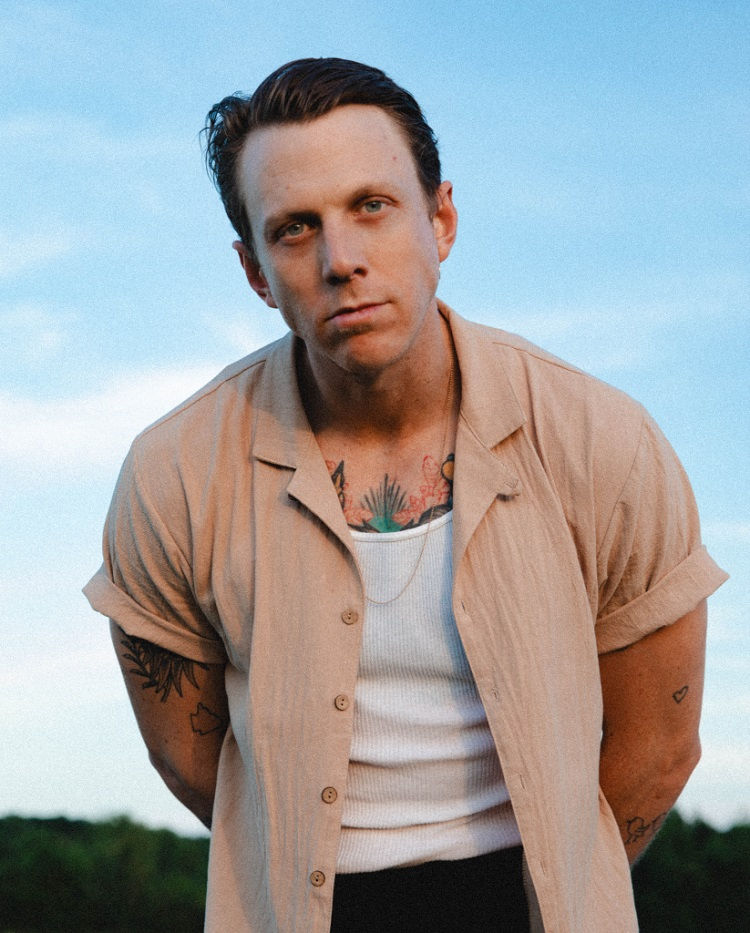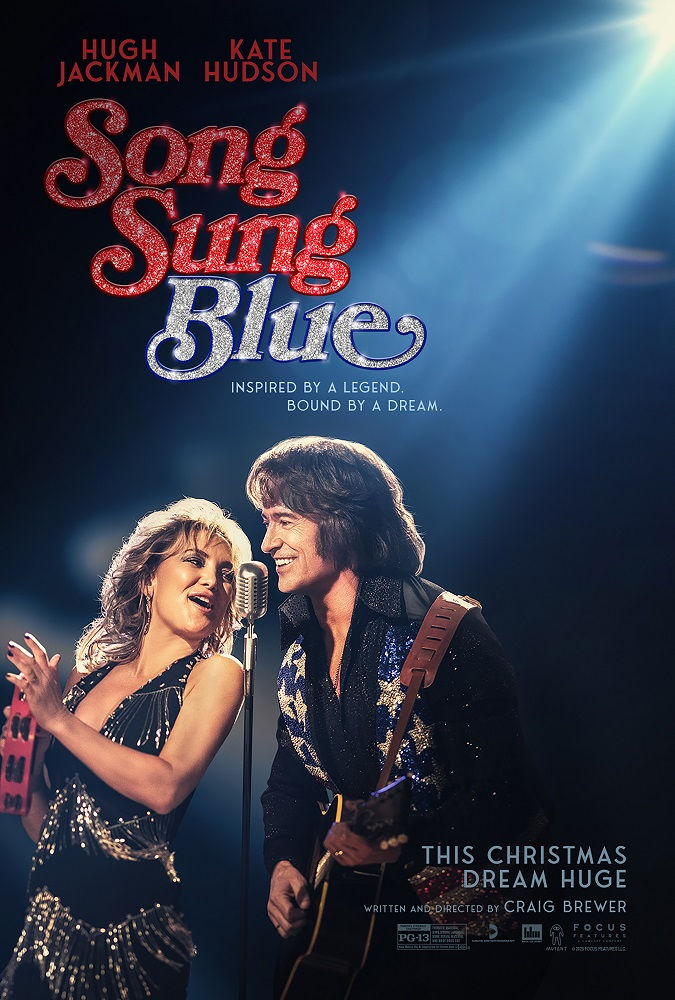Josh Rennie-Hynes – Aussie Rocker Transitions to a Musical Life in Nashville
- PopEntertainment

- Sep 16, 2024
- 6 min read

Josh Rennie-Hynes
Aussie Rocker Transitions to a Musical Life in Nashville
by Brad Balfour
Australia is one peculiar place, a land full of animals not found anywhere else, like the koala and kangaroo. It has an odd history as well. Following the loss of its American colonies in 1783, the British government sent a fleet of ships to establish a new penal colony in New South Wales. Set up at Sydney Cove, Port Jackson, on January 26th, 1788, the date later became Australia's national day.
Most early settlers were convicts – many of them Irish – transported for petty crimes and assigned as laborers or servants to the "free settlers." Once emancipated, the convicts tended to integrate into colonial society. Convict rebellions and uprisings were suppressed under martial law. That lasted for two years following the 1808 Rum Rebellion, Australia's only successful coup d'état. Over the next two decades, social and economic reforms saw New South Wales transition from a penal colony into a civil society.
Nearly 200 years later, the island nation also spawned its own brand of pop music collectively called "Oz" or "Aussie" rock. With a rich history rooted in various rock genres from the United States and Britain, Australian rock also contributed to their development of some of them. What's more, it had its own unique Australian sound with pub rock and Indigenous music.
For contemporary Aussie rocker Josh Rennie-Hynes, the past few years have been a whirlwind. After being awarded the prestigious Australian Arts Council's Nashville Songwriters Residency – a grant given to just one Australian artist each year – the Queensland-born musician relocated to the US in May 2018. This move marked a new chapter for Rennie-Hynes. He left behind a thriving solo career in Australia, as well as his role in The Ahern Brothers, a folk duo whose harmony-rich debut album earned a four-star review from Rolling Stone and a dedicated fan base across Australia and New Zealand.
Seeking a change in both musical direction and environment, Rennie-Hynes settled in the creative, close-knit community of East Nashville. Immersed in the city's vibrant music scene, he released a series of singles and four full-length albums since his move, 2019's Patterns, 2022's Day Rage and in 2023 Light/Shade and Fragile Like a Bomb. These added to an already impressive catalog which included a self-titled album in 2012, February in 2014, and Furthermore in 2016.
In 2020, he signed a publishing deal with Urband and Lazar, a company with artists such as The Kooks, Lil Wayne, and Citizen Cope. His music has been featured on multiple TV shows and he was the most-placed artist on the latest season of the global hit Netflix series, Virgin River.
Rennie-Hynes' music, marked by its authenticity and eclecticism, is familiar yet distinctively his own. One of Australia's standout musical exports, he's built a reputation for his unforgettable live performances, touring extensively across Australia, New Zealand, and the US. He performs regularly in Nashville and has toured throughout the States.
This interview was conducted online with the Australian-born, Nashville-based artist who continues to evolve in his musical journey.
When/how did you settle on the style of music you write in and like to perform?
My music has changed and evolved quite a lot. I'm six albums deep now with more on the way. I started out more in the folk/Americana world and since then have evolved in my sound, growing and exploring along the way. Moving to America six and a half years ago really opened me up to trying new things and pushing myself artistically without fear in an entirely new place. But I think I've always tried to write honestly from my heart, no matter what the production or genre is. My newest album Fragile Like a Bomb is a more indie rock outing. To me, it's all just music. I like to explore and follow what inspires me.
What comes first — lyrics or the music? And how do you structure your songs?
It can be either. I take songs however they come. Sometimes I'll have a lyric that's floating around in my head that I build a song around. Sometimes it's a melody or guitar line that I build out from. Sometimes a song or hook comes to me in a dream, and I'll wake up and record the idea. I've always got songs and ideas floating around in my head.
Given your Australian experience, how did it shape you and your music?
I grew up in the country on a small farm so that definitely shaped my outlook and perspective on life and music. I have a strong sense and appreciation for nature, and I think most Aussies have a spirit of the bush imbued in us. The smell of the eucalyptus, the chorus of birds in the morning... there are certain things that have just stuck with me and made their way into my music. I went back last Christmas for the first time in five and a half years. COVID and the visa situation kept me stuck in the US. I really felt like it reawakened something in me.
Growing up, it was a very musical household. Dad was always playing and singing, mum playing records. Family gatherings we'd often sit around with a guitar and sing songs late into the night together. Looking back, it was special and definitely impacted my music. I've always felt drawn to melody and harmonies too.
Do you have certain rock icons in mind, especially Australian artists?
One of the first concerts I ever remember seeing as a kid was Midnight Oil. I remember watching [lead singer] Peter Garrett on stage, flailing around dancing, and just being mesmerized. That had a huge impact on me at a young age. I feel like I went through stages with a lot of the great rock icons and became a student of them at different times — Neil Young, Tom Petty, Bruce Springsteen and such. I grew up playing in more punk-esque bands, too, in my teenage years. Guys like Paul Westerberg [formerly of the Replacements] definitely had an impact on me. Paul Kelly is a legendary Australian songwriter and artist, so I'd put him in there, too.
You also have Irish roots like many Australians do. Please detail your family's connection to Ireland.
My great, great grandparents Peter and Margaret Hynes migrated from Galway, Ireland to New Zealand in 1875, searching for a better life. They sailed on a ship called the James Nichol Fleming and they left London on May 4th, 1875, and arrived in Otago, New Zealand exactly three months later, on August 4th, 1875. My father, Roderick Wallace Hynes, was a Kiwi. He moved to Australia when he was 20 years old and met my mum while working on her family's banana farm in sub-tropical Queensland. She became pregnant, they got married and the rest is history.
Making the transition from Australia to the States, what did it take to make the adjustment?
I was pretty ready for it when I moved, so I didn't find it too hard. I had always felt the pull to just come and live in the US and feel it out. I was fascinated by the chaos of it here, as strange as that might sound, and the market for music and opportunity is huge. Nashville is a good place, and it felt like home pretty quickly to me. Being completely landlocked was definitely hard at first, coming from Australia where it's all wide-open spaces and ocean. That took me a few years to adjust to, but I have my water spots here now so I'm more at peace. There are a lot of subtle cultural differences, too. But there's also a lot of similarities.
What is the inspiration here — and why Nashville not Los Angeles or NYC?
I specifically moved to Nashville because, in 2018 when I was moving to the US, right before I left, I was fortunate to receive the "Nashville Songwriters residency" which is awarded to one Australian songwriter a year from the Australian Arts Council. More on the grant here: https://creative.gov.au/investment-and-development/international-engagement/residencies/nashville-songwriters-residency/
This led me to Nashville. I didn't have a plan as to whether I would stay in Nashville long term or not. But here we are six and a half years later. I like Nashville a lot. I've always lived in East Nashville and it's a big creative community. There's so much more here than just country music.
Ever think you'll return to Australia to live?
Yes, I think so at some point. I am about to get married to my American partner and we want to have a family in the coming years. I think we'd like for some of their childhood to be in Australia as it's a great place to raise kids. But I've got lots happening here too, so we'll see how it all pans out.
What do you think of as your life's benchmarks so far?
I think my albums are my life's benchmarks. I'm really proud of all of them. I can look back on them and say that I gave each and every other album my all at that point in time. And they all document a different chapter in my life. Growth and exploration. The creative path isn't always easy but it's a beautiful ride and you learn a lot about yourself.
Copyright ©2024 PopEntertainment.com. All rights reserved. Posted: September 17, 2024.
Photo © 2023. Courtesy of Josh Rennie-Hynes. All rights reserved.











Comments